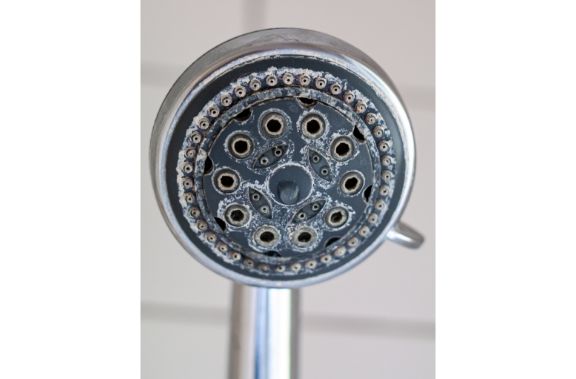Dealing With Hard Water: Solutions and Treatments
Lime scale and water hardness are highly undesirable, which is why many homeowners rely on Groupe Ilqueau to tackle the negative effects of hard water in their everyday lives. With a 99% satisfaction rate, you can be confident you won't be disappointed!
The Consequences of Hard Water

Hard Water Treatment: A Solution for Water Hardness
Get in Touch with a Groupe Ilqueau Specialist
FAQ about Hard Water Problems
Hard water is water with a high concentration of minerals, mainly calcium and magnesium. It typically happens when water flows through limestone, chalk, or gypsum beds, picking up these minerals. You’ll often find hard water in areas with high mineral content in the soil and bedrock. While it’s not a health hazard, hard water can be a nuisance in daily life, like making it tough for soap to lather and leaving scale buildup on your fixtures and appliances.
Look out for telltale signs of hard water, like white scale deposits on your faucets and in your tub or shower. If your soap doesn’t lather well or your dishes come out of the dishwasher spotty, those are clues too. For a surefire way to tell, a hard water test kit from your local hardware store will do the trick. It measures the mineral concentration in your water.
Drinking hard water is generally safe. It can actually be a source of essential minerals like calcium and magnesium. But, if you have sensitive skin or hair, hard water might irritate it. Some folks also notice a different taste when drinking hard water, but it comes down to personal preference.
Hard water can be tough on your home appliances and plumbing. The minerals in the water build up inside pipes, decreasing flow and putting extra pressure on your plumbing. In appliances like water heaters and dishwashers, this buildup reduces efficiency and shortens their lifespan, leading to more frequent repairs and replacements.
You’ve got a few choices when it comes to handling hard water. A popular one is a water softener, which uses an ion exchange process to remove calcium and magnesium. If you’re looking for something different, there are magnetic or electronic conditioners that change the minerals’ structure, making them less likely to cause buildup. The best option depends on how severe your hard water issue is and your preferences regarding upkeep and cost.
Maintaining a water softener is pretty straightforward but necessary for it to work well. You’ll need to regularly refill the salt for ion exchange and clean the tank now and then. Following the manufacturer’s maintenance guidelines is key, and it’s a good idea to have a professional check it out periodically to make sure everything’s running smoothly.
Softened water brings several perks. It can extend the life of your appliances by preventing scale buildup. It’s also better for cleaning, allowing soaps and detergents to lather up and rinse off more easily, which can be great for your skin and hair. Plus, softened water can cut down on your energy bills by making water heaters more efficient and reducing the cost of heating water.
Groupe Ilqueau has a variety of solutions for hard water problems. We start by testing the water in your home to figure out how hard it is and then recommend the best approach. Our lineup includes top-notch water softeners and alternative systems for those looking for a salt-free option. Plus, we provide expert installation and maintenance services to keep your systems in tip-top shape, ensuring your appliances and plumbing last longer and perform better. Contact us today!
